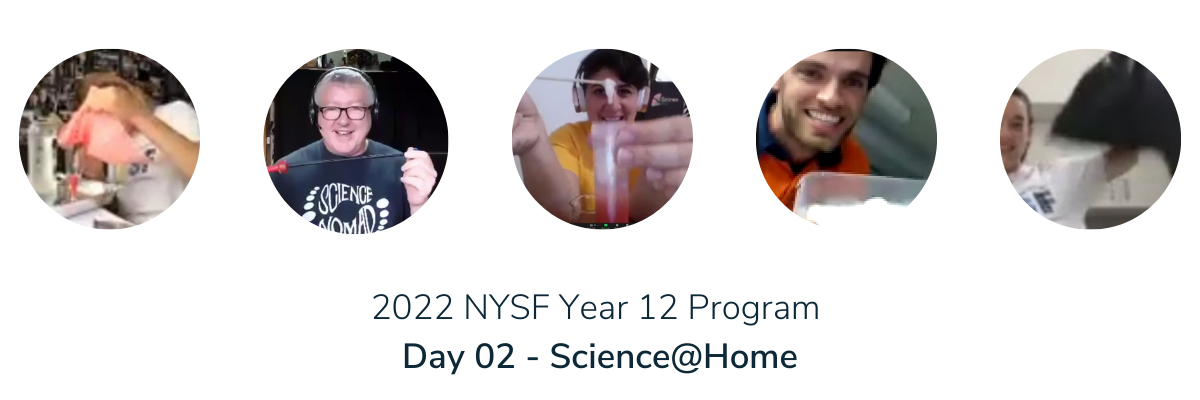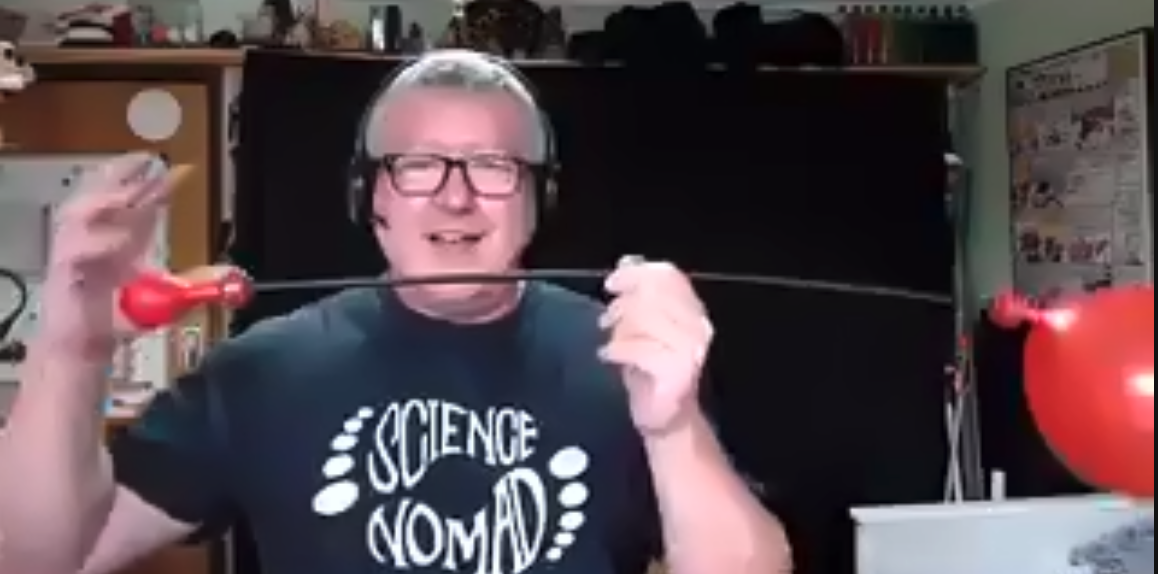
What do rubbish bags, straws, fruit, toilet paper, and ice have in common? These are all materials used by participants during their exciting afternoon of Science@Home!
With their Critical Thinking skills unlocked from that morning's session, Stuart Kohlhagen aka The Science Nomad started by extending everyone's ability to question "the rule" and encouraged them to always ask questions. The Science Nomad commenting; "We can’t ask nature what the rules are, we have to figure it out through inquiry."
With their mind's in gear, Stuart went on to show everyone some quick-fire at-home science observations and experiments that questioned how we see our own reflection, the movement of air between two connected balloons, and how quickly can 625 students fill garbage bags with air!
With a chorus of "thank yous" echoed by our students at the closing of the session Stuart had a simple message; “You can start tackling tricky problems with simple materials.”

After a quick break, the investigations continued with NYSFers gathered online to participate in Biochemistry and DNA with Dr Bianca Warnock from Sciren and the Wonders of Pykrete with Scott Jones from UNSW.
As Dr Warnock spoke about the wonders of DNA and science in our everyday world, the enthralled audience zipped, squished, agitated, strained and admired their very own DNA strands extracted from strawberries and bananas! With the NYSFers now qualified laboratory technicians, Dr Warnock made sure to leave them with both scientific and self-worth motivations;
"Those bonds are what keep you solid, are what make up your matter. So don’t let anyone tell you that you don’t matter."

Did you hear about the World War 2 ship made of pykrete? In the concurrent session, Scott and his helper Ally from UNSW got the participants up to speed with the basics of material science before launching into hands-on creation of their own pykrete bricks from toilet paper and water! With a bit of "here's one I prepared earlier" magic, students then watched a live comparison of the fracture toughness of ice compared to pykrete when dropped from a height. The "thud" of the unbreakable pykrete hitting the ground inspired students to test the structural limits of at-home pykrete later on in the day!

With their minds filled with questions from their session with Stuart, and experimental methods from Dr Warnock and Scott, the newest cohort of NYSFers certainly enjoyed their afternoon of Science@Home and will no doubt be investigating what else they can scientifically observe and question in their own homes.
The 2022 NYSF Year 12 Program participants embraced the concepts brought to life in their kitchens.
"I thought the Science@Home with the Science Nomad was super fascinating. I really liked how he got us to question very obvious stuff in our everyday life."
"I normally wouldn't be interested in psychology or biology but those were my favourite sessions today. I found them so interesting and loved the speakers."
"The pykrete session interested me a lot with the whole concept that materials other than metals and ceramics can be used to create strong architectural buildings. Knowing more about this concept would be interesting."
"The Science Nomad was awesome, and the unexpected experiment results were really engaging and entertaining."
Thank you to all of our wonderful presenters for their time and effort in creating such engaging hands-on sessions that students could enjoy from anywhere in Australia.
The 2022 NYSF Year 12 Program Science@Home session was proudly supported by The Naval Shipbuilding College.
